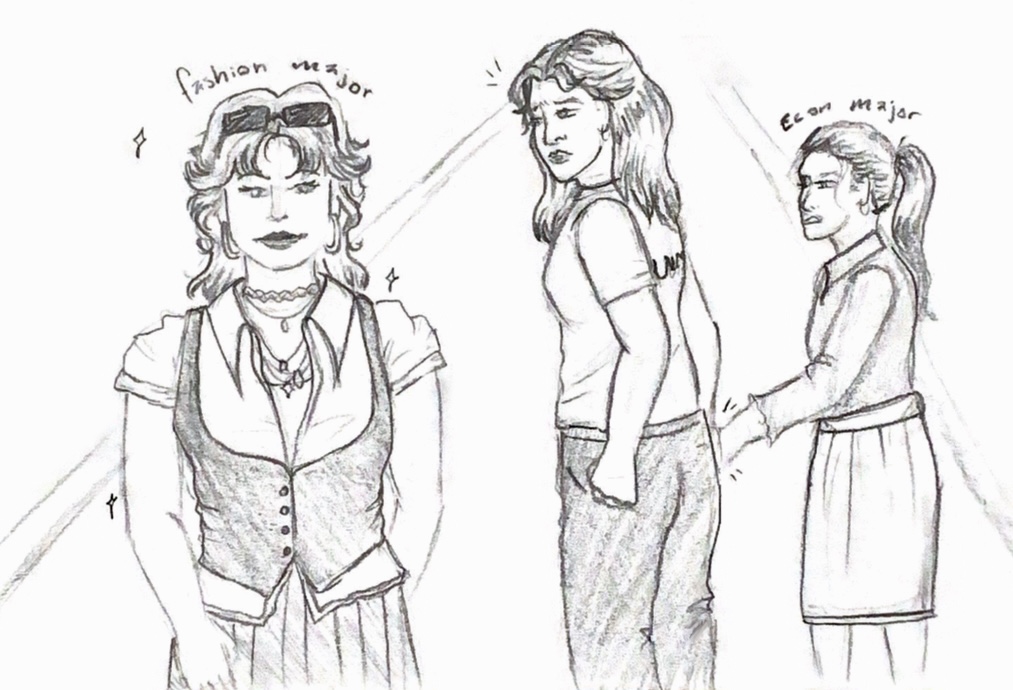Finding a dream job often requires choosing between fulfillment and financial security, with few careers offering both in such a fast-paced and money-driven world.
Entering college, I planned to minor in studio art. As a business major, I wondered how supplemental it would be to my future career.
In high school, drawing or painting for a grade in class didn’t lead to my best work: my motivation decreased and my creativity dulled.
On one hand, I wasn’t sure if taking more art classes would be right for me. On the other hand, the expectation that people must be devoted to their passion loomed large in my head.
I felt cowardly for not taking the leap and choosing art as my major, pouring all my energy into it. I began to fear that choosing financial security was the beginning of an unsatisfying life.
It is hopeful that job satisfaction is shown to increase 24% from ages 18 to 65, according to a Dec. 24, 2024 report from Pew Research Center.
But I knew I had to think differently. That’s when I read about ikigai.
The Japanese concept of ikigai provides a new way to live for those who adopt it. Ikigai is the combined result of individual strengths, world necessities, something that is payable and personal passions.
All the areas of Ikigai may be hard to achieve with one job, but ikigai is meant to be applied to more than just occupation, according to a Nov. 17, 2020 Positive Psychology article.
I saw the notion of ikigai as a more versatile way to round out my life.
Our passions can quickly become mechanical and lifeless if done for the wrong reasons. If I felt compelled to create art for compensation, it could lose its meaning in my life.
Trying to cram all four areas of ikigai into a job was simply unrealistic, especially at such a young age.
It is normal to spend time in intermediate jobs on the journey to a career, as one-third of younger workers are doing, according to another Dec. 10, 2024 Pew Research Center report.
Last year, only 28% of American workers under 29 viewed their jobs as long-term careers. This increased to 62% when workers reached 50, according to the same article.
I came to the conclusion that studying art would likely not be as fulfilling as pure, authentic expression while I pursue another field; financial security mattered more to me than the creative aspects of a job. Knowing this helped me decide to delay my time spent on art.
Now, as I focus on business, I trust I have time to change my path if needed.
Understanding ikigai helped me find a clearer place for my job, which is within the life I build around it.
Thus, I know keeping art on the outskirts of my career preserves its healthy role.
I learned that it is not shameful to stay at a nine-to-five if it fulfills me professionally and pays the bills. For many, income alone is the only factor. It’s okay to love your occupation for what it is: a job.
Defining a dream job is complex, because both financial security and personal fulfillment matter, and both are dignified goals. Ikigai now represents my way of life, which is more than what I do to make money.
The destination I was longing for after college won’t be my first job, or even my career alone at all. It is the life I will build along the way, which will have more than enough space to fill with everything I love.














